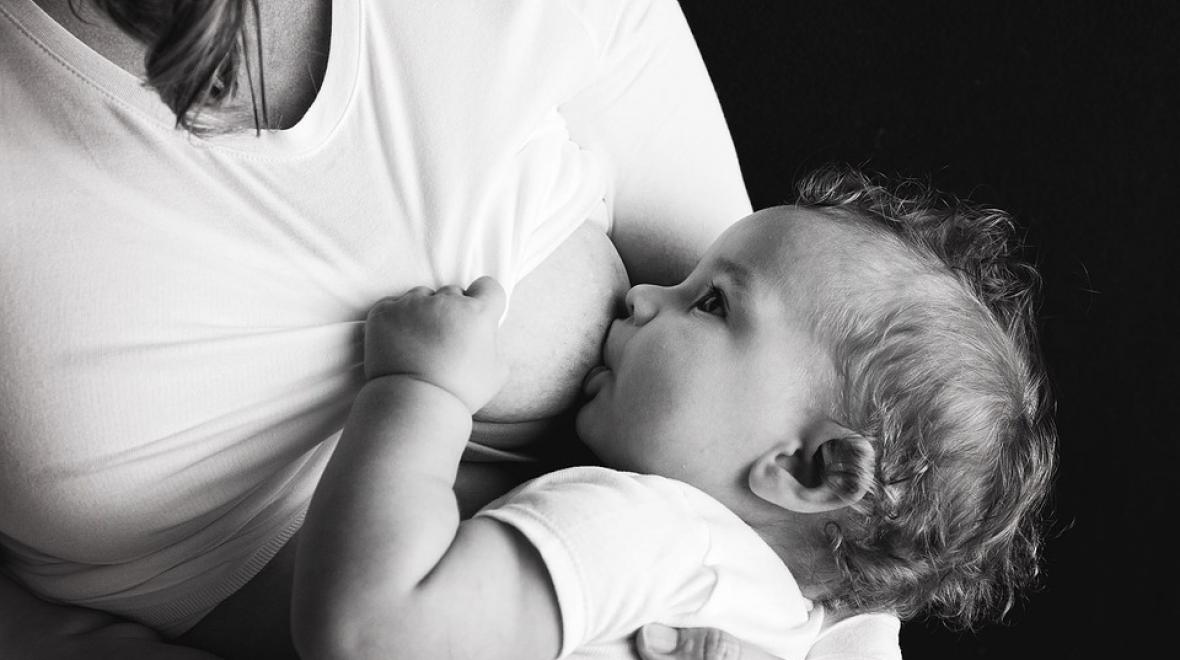
Breast milk is the perfect source of nutrition for a baby’s first 6 months of life. It provides the ideal blend of carbohydrates, protein, fat, water and nutrients a baby needs to grow and thrive. Many organizations, including the American Academy of Pediatrics (AAP), recommend that babies be exclusively breastfed for the first six months, with breastfeeding continuing through at least the first year.
While it’s clear that breast milk is best for infants, there can be some confusion around what a breastfeeding mother needs to eat. Learn how a mother’s diet affects her breast milk and what to eat when nursing your baby.
Impact of mom’s diet on breast milk
Breast milk is made by the mammary glands in the breasts. The mammary glands take nutrients from your diet and nutrients from your body’s stores to make breast milk. If you don’t consume enough nutrients or calories to meet your needs and your baby’s needs, your mammary glands will get first dibs.
Available nutrients will first go to make nutritious breast milk, leaving you with what’s left over. This means even if your diet is less than perfect, the quality of your breast milk will likely be sufficient to support your baby’s growth and health, but it can deprive you of important nutrients. For your own health and to keep your energy levels up, try to eat nutritious foods throughout the day.
As far as supply goes, you don’t need to consume certain foods or drinks to make more breast milk. Studies also show that milk supply is not affected by moderate exercise. Factors that can cause low supply include extreme dieting, smoking, taking certain medicines, having latch problems and not breastfeeding your baby often enough.
Good nutrition while breastfeeding
Having a nutritious diet can help keep you and your baby healthy when you’re breastfeeding. The foods you eat not only help to supply you and your baby with vital nutrients, but they also affect the taste of your breast milk. Eating a varied diet can introduce your baby to an array of flavors from the start. This may help babies accept and try new foods as they get older.
A healthy diet when breastfeeding looks no different than a standard healthy diet. Eat a balanced variety of fruits, vegetables, whole grains, low-fat and nonfat dairy products, and lean sources of protein. Choose an assortment of foods from the food groups to help get all the nutrients you need. Limit foods high in saturated and trans fat, sodium and added sugars.
You should also take in enough docosahexaenoic acid (DHA), an omega-3 fatty acid. Babies need DHA for brain development. Consuming 8 to 12 ounces of fatty fish, such as salmon, herring and canned light tuna, two times each week can help meet your baby’s DHA needs.
Choosing a variety of nutritious foods each day can help meet your increased nutrient needs while breastfeeding.
If you don’t eat fish, ask your doctor if you need a DHA supplement. Many doctors also say that women should continue to take prenatal vitamins when breastfeeding. Talk to your doctor about your supplement needs.
What not to eat
While you don’t need to follow a special diet, certain foods and drinks deserve caution when you’re breastfeeding. Nursing moms should avoid fish high in mercury, like shark, swordfish, king mackerel and tilefish. Mercury can pass into breast milk and harm a baby's brain and nervous system.
Some caffeine and alcohol can pass through breast milk to your baby, too. The AAP says it’s okay to consume moderate amounts of caffeine (about 2–3 cups of caffeinated beverages per day) while you’re nursing. Just keep a close eye on your baby for any reactions. Caffeine in breast milk may make your baby irritable or have trouble sleeping.
When it comes to alcohol, it’s best for your baby if you avoid it while breastfeeding. If you choose to have a drink, wait at least two hours before nursing again to allow time for the alcohol to clear from your body.
It’s uncommon for a breastfed baby to develop an allergy to a food in the mother’s diet. But some babies may be bothered by certain foods their moms eat. Common culprits can include spicy or gas-producing foods, like cabbage or broccoli.
If you think a food is making your baby gassy or colicky, talk to your baby’s doctor. You can also remove that food from your diet and see how your baby reacts.
How much to eat and drink
Producing breast milk increases your calorie and nutrient needs. The exact number of extra calories you need to take in depends partly on the age of your baby. Once babies start eating solid foods, they’ll likely reduce how much breast milk they consume. As your baby cuts down on nursing sessions, you won’t need to take in as many additional calories.
Most nursing moms feel thirstier and need more water when breastfeeding, too. This is because your body relies on your fluid reserves to make breast milk (but drinking extra water won’t increase your milk supply). A good rule of thumb is to drink one glass of water during each nursing session.
The bottom line
Take heart in knowing that your body was designed to make breast milk to meet your baby’s needs at every stage of development. Nursing moms don't need to eat any special or different foods.
Choosing a variety of nutritious foods each day can help meet your increased nutrient needs while breastfeeding and give your baby a head start on healthy eating.











